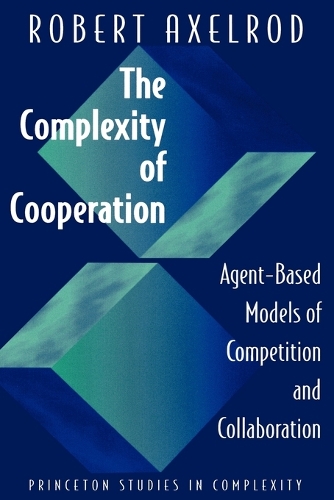
The Complexity of Cooperation: Agent-Based Models of Competition and Collaboration
(Paperback)
Publishing Details
The Complexity of Cooperation: Agent-Based Models of Competition and Collaboration
By (Author) Robert Axelrod
Princeton University Press
Princeton University Press
17th November 1997
United States
Classifications
Professional and Scholarly
Non Fiction
3D graphics and modelling
302.14
Physical Properties
Paperback
248
Width 152mm, Height 235mm
369g
Description
A collection of seven essays that serves as an introductory text on complexity theory and computer modelling in the social sciences, and as an overview of the current state of the art in this field. The articles move beyond the basic paradigm of the "Prisoner's Dilemma" to study a rich set of issues, including how to cope with errors in perception or implementation, how norms emerge, and how political actors and regions of shared culture can develop. They use the shared methodology of agent-based modelling, a technique that specifies the rules of interaction between individuals and uses computer simulation to discover emergent properties of the social system.
Reviews
"Robert Axelrod's extraordinary book, The Evolution of Cooperation was globally acclaimed for the rich results of its simple model. The Complexity of Cooperation now gathers together the myriad fruits of more than a decade's work, carefully 'complexifying' his initial model. Like his ideas, his prose is clear and engaging. His delight as he unveils each surprising discovery is infectious. This book is not merely important; it's fun."Robert D. Putnam, author of Making Democracy Work
Author Bio
Robert Axelrod is the Arthur W. Bromage Distinguished University Professor of Political Science and Public Policy at the University of Michigan. His work on cooperation and norms has received awards from the American Association for the Advancement of Science, the American Political Science Association, the MacArthur Foundation, and the National Academy of Sciences.
